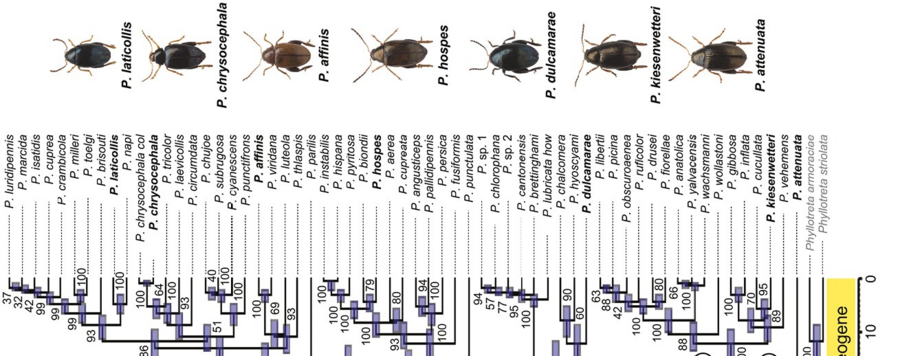
Psylliodes flea beetles...
Flea beetles of the genus Psylliodes have evolved specialized interactions with plant species belonging to several distantly related families, mainly Brassicaceae, Solanaceae, and Fagaceae. This diverse host use indicates that Psylliodes flea beetles are able to cope with different chemical defense metabolites, including glucosinolates, the characteristic defense metabolites of Brassicaceae. Here we investigated the evolution of host use and the emergence of a glucosinolate-specific detoxification mechanism in Psylliodes flea beetles. In phylogenetic analyses, Psylliodes species clustered into four major clades, three of which contained mainly species specialized on either Brassicaceae, Solanaceae, or Fagaceae. Most members of the fourth clade have broader host use, including Brassicaceae and Poaceae as major host plant families. Ancestral state reconstructions suggest that Psylliodes flea beetles were initially associated with Brassicaceae and then either shifted to Solanaceae or Fagaceae, or expanded their host repertoire to Poaceae. Despite a putative ancestral association with Brassicaceae, we found evidence that the evolution of glucosinolate-specific detoxification enzymes coincides with the radiation of Psylliodes on Brassicaceae, suggesting that these are not required for using Brassicaceae as hosts but could improve the efficiency of host use by specialized Psylliodes species.





